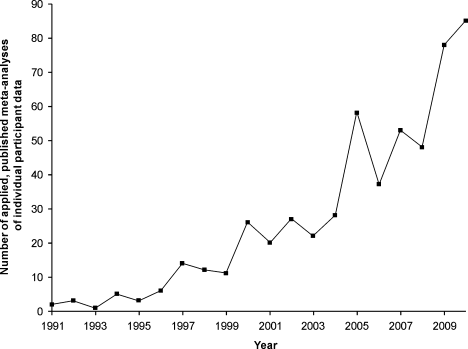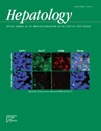Meta-analysis using individual participant data is the gold standard for diagnostic studies†
Potential conflict of interest: Nothing to report.
We read the article by Lin et al. with great interest.1 Using aggregate data (AD), the authors performed a meta-analysis to assess the accuracy of the aminotransferase-to-platelet ratio index in predicting fibrosis stage in hepatitis C virus (HCV)-monoinfected individuals and individuals coinfected with HCV and human immunodeficiency virus. However, we would like to comment on the concerns raised over their data collection approach.
As we know, AD usually refers to averaged or estimated data taken directly from reported literature; it is less accurate and can easily misinform readers. Therefore, individual participant data (IPD) is urgently needed.2 IPD meta-analysis (IPDMA) is widely considered to be more reliable than AD meta-analysis, and these two approaches may lead to wholly opposite conclusions.3, 4 Currently, the number of published articles using IPDMA has risen dramatically from a few articles per year in the early 1990s to an average of 50 per year since 2005 (Fig. 1).

Number of distinct, applied meta-analyses of individual participant data published from January 1991 to December 25, 2010, as identified by a systematic review of PubMed.
In contrast to AD meta-analysis on diagnostic studies, IPDMA has the potential to establish the value of test combinations.2, 5, 6 First, IPD can be considered as original continuous data rather than dichotomous classification data and can be analyzed from beginning to end. In addition, this approach is essential to determining a relation between test result and disease, because the test accuracy could be estimated at different cutoff values. Second, the association across patient-level characteristic or between patient level and study level characteristic (study design, setting) can be assessed, without the ecological fallacy problem.
In summary, IPDMA needs to be applied in the diagnostic study.
References
Ming-Hua Zheng M.D.*, Ke-Qing Shi M.D.*, Yu-Chen Fan M.D. , Yong-Ping Chen M.D.*, * Department of Infection and Liver Diseases, Liver Research Center, The First Affiliated Hospital of Wenzhou Medical College, Wenzhou, China, Department of Hepatology, Qilu Hospital of Shandong University, Jinan, China.




